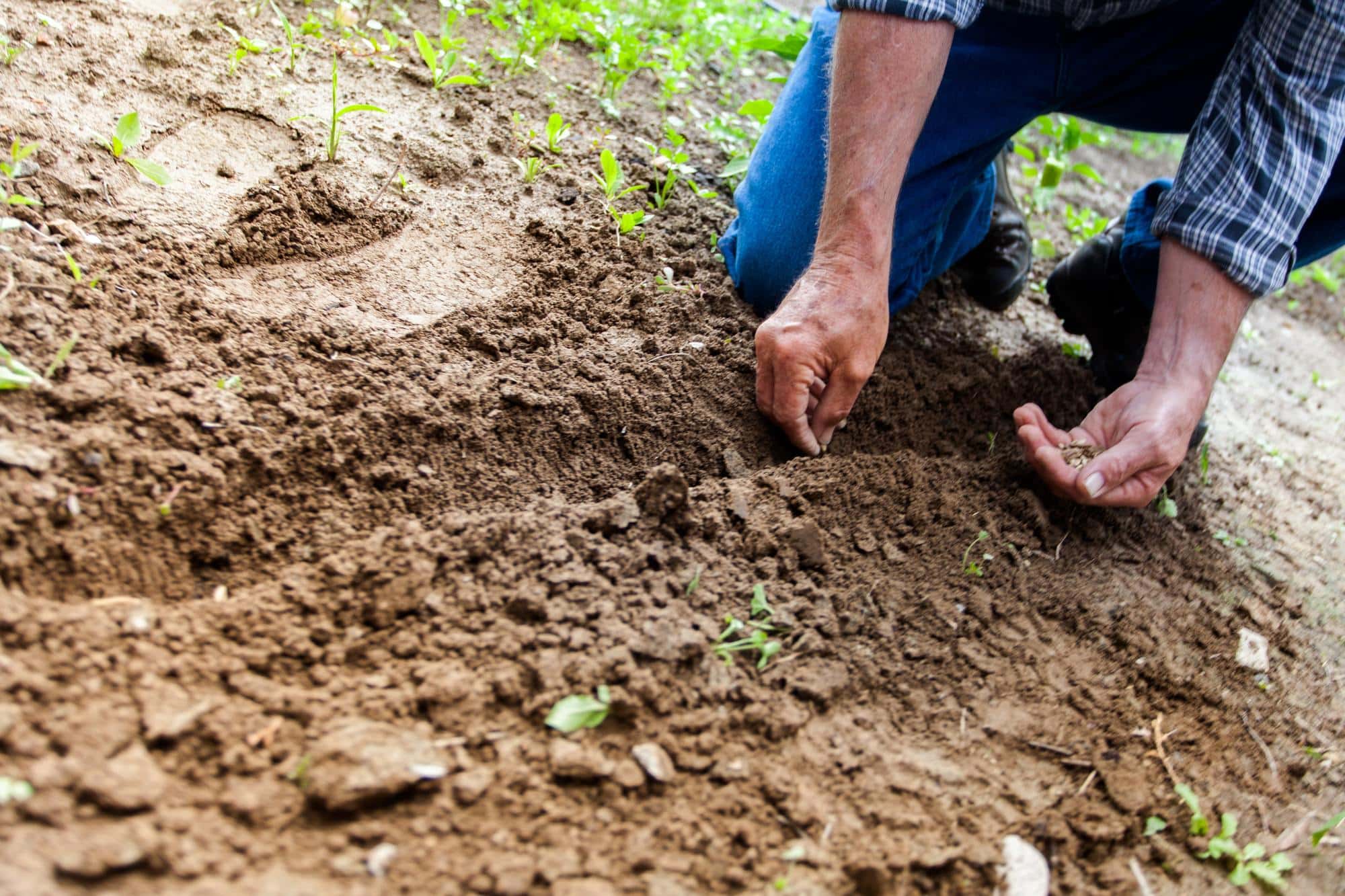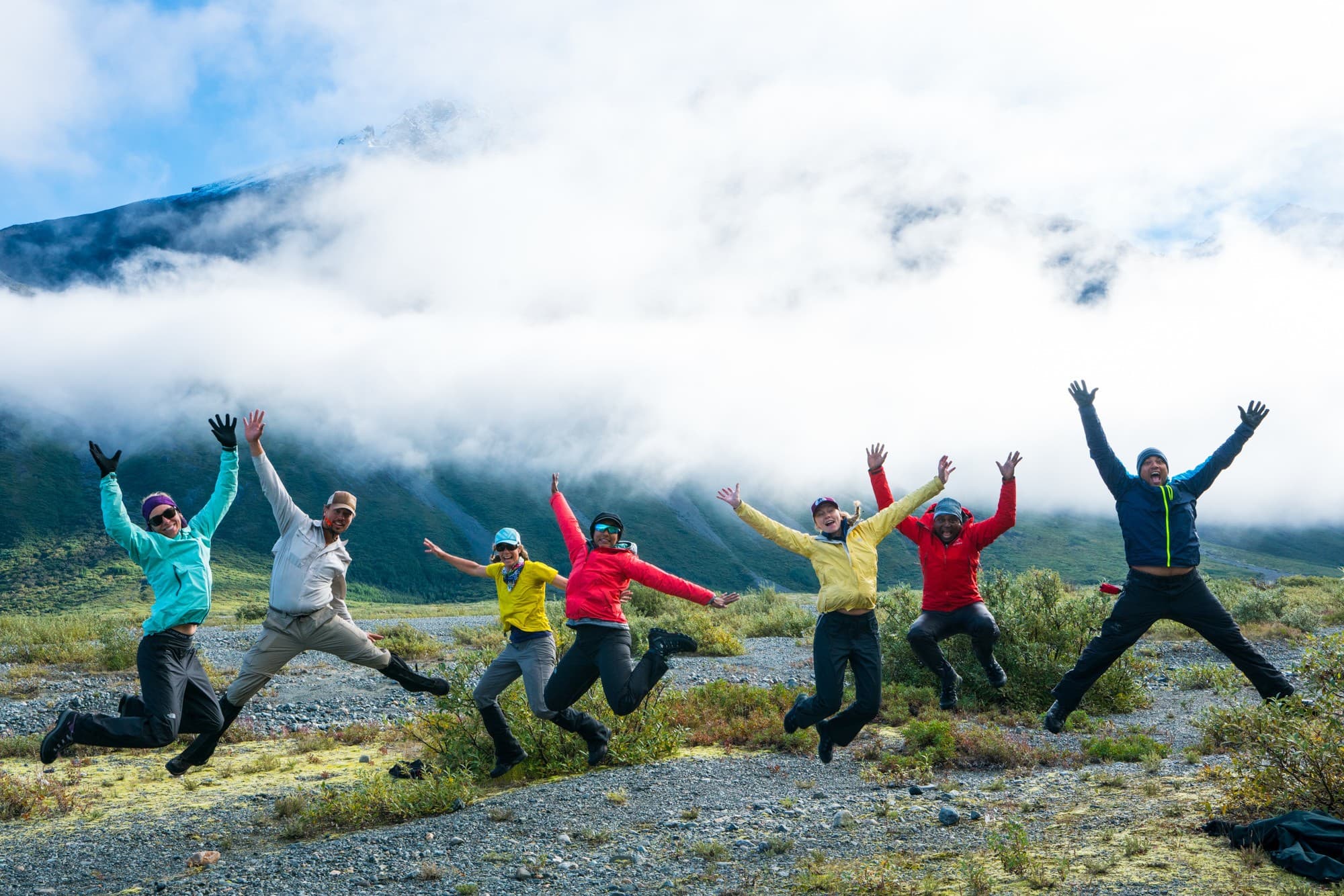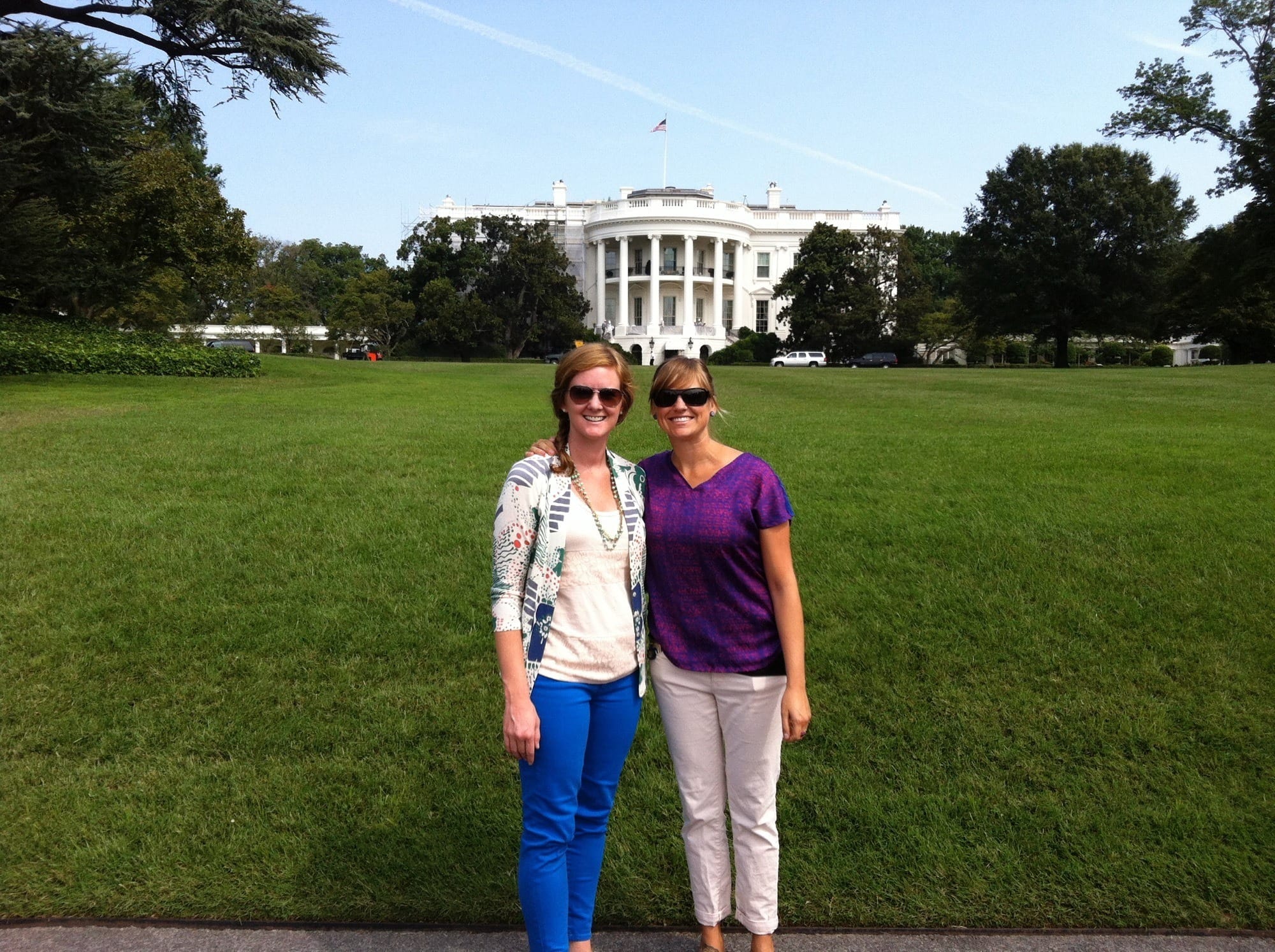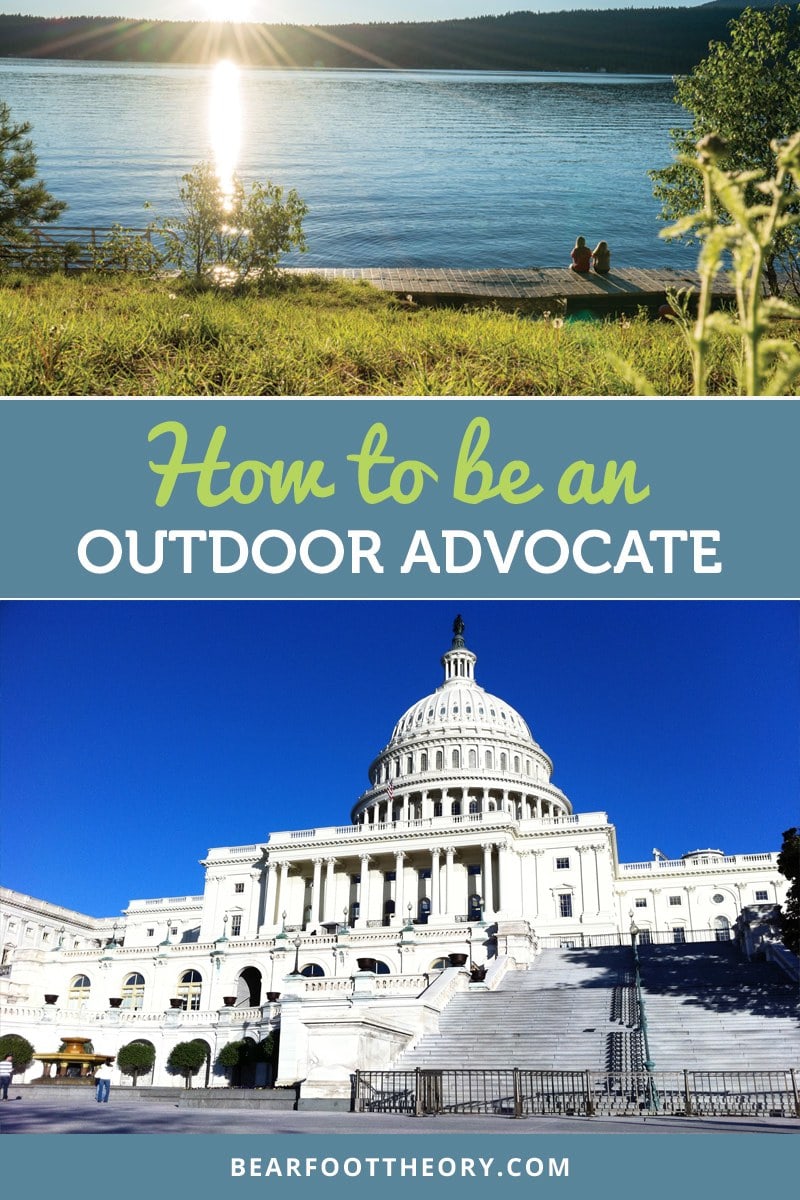How to Be an Effective Outdoor Advocate
Learn how to speak up for the environment. Get tips for getting involved in the political process, leading by example, and finding groups working on the environmental issues you care about.
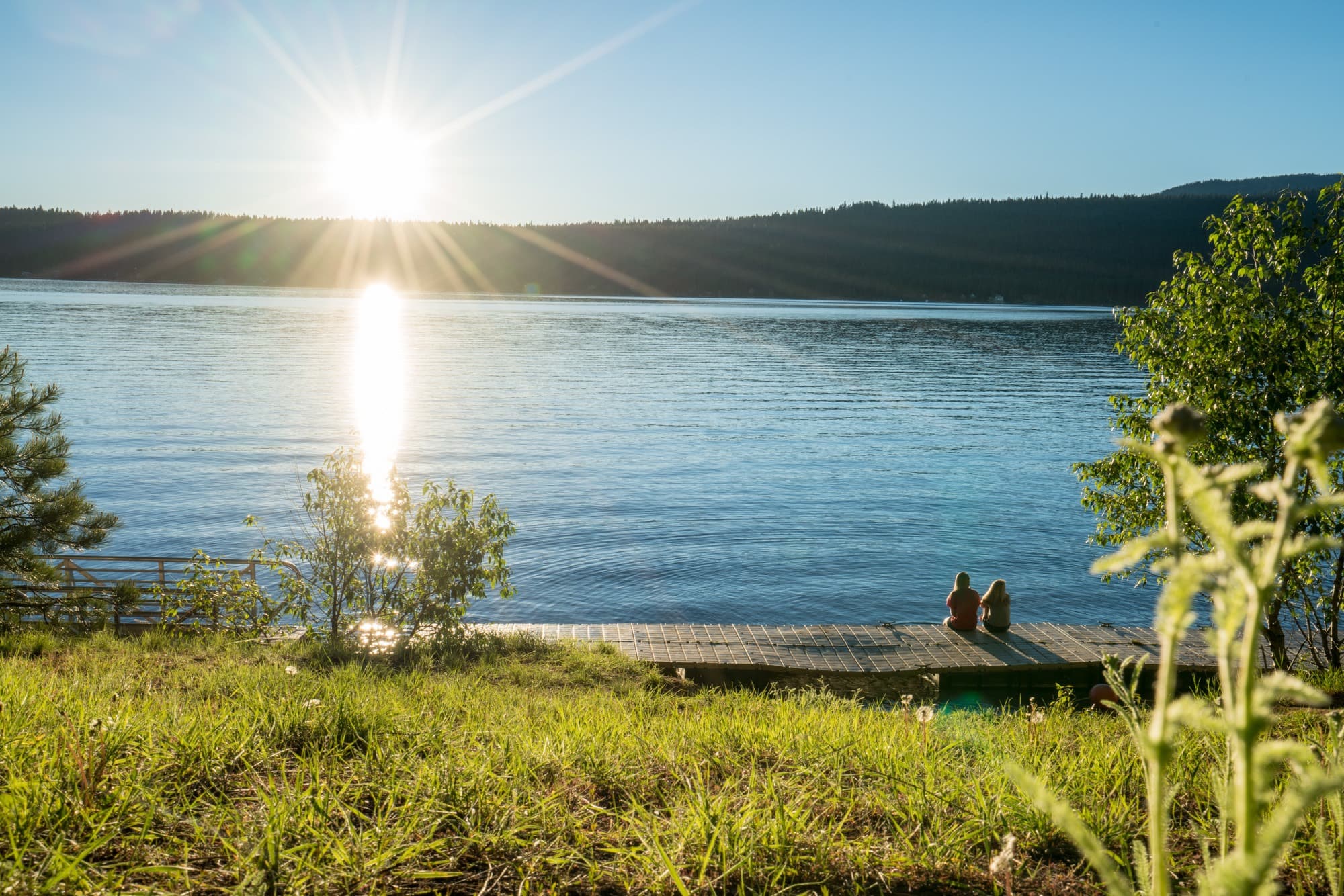
As outdoor enthusiasts, sometimes we forget that we also need to protect and care for the places we love. It’s important to speak up and be a voice for the places that aren’t able to speak for themselves.
Back in 2012, I landed a fellowship in Washington DC to work on the Hill in the conservation policy field, and I ended spending three years there advocating for pro-environmental policies. That experience was a real eye opener and taught me how important it is for people to be engaged in vocal in the issues that are important to them.
Maybe you don’t consider yourself political. Or maybe you don’t know how to get involved. If you’ve ever wanted to know more about how to be an effective outdoor advocate, then this post is for you.
In honor of Earth Day, we at Bearfoot Theory thought this would be the perfect time to remind all of us outdoor enthusiasts, how we can be responsible and respectful stewards of our environment today and every day.
Here is a list of ways you can get more involved and be a more effective and vocal outdoor advocate.
[separator style_type=”icon” /]
Identify Which Issues Matter to You Most
No matter how much you care about each environmental issue, you simply can’t fix everything. To be an effective outdoor advocate you need to choose a topic or two that are important to you and do them well. Whether it’s plastic pollution, public lands or maintaining your favorite local hiking trails, the more you focus and educate yourself on those issues, the bigger of a difference you’re likely to make. So, take some time to really consider what matters most to you and the ways in which you can play a more active role in your everyday life.
[separator style_type=”single” /]
Connect with Local Organizations
Once you’ve become clear about which topics you want to be an outdoor advocate for, it’s time to do a bit more research on the local groups and organizations that are already working to conserve them. Get involved in those groups and be willing to lend a hand in ways both big and small.
Be willing to go out and get your hands dirty. Volunteer for a trail crew, join a community garden, participate in a beach cleanup, or get involved in campaigns to reduce use of single-use plastics. Getting out on the ground is a powerful way to make a difference and can also serve as a conversation starter. In doing so, you might even inspire others to be outdoor advocates themselves.
[separator style_type=”single” /]
Introduce Others to the Outdoors
Think about the person who first introduced you to the outdoors. Was it their passion for the outdoors that rubbed off on you? Or maybe you felt inspired and motivated by people who were out there getting after it and wanted to do the same. Whatever it was, there’s no better way to create a powerful ripple effect than being that person for someone else. Lead by example and take your non-outdoorsy friends out on the trail and educate them on how to Leave No Trace in a non-judgmental manner.
The only way to convert “indoorsy folks” into outdoor enthusiasts and advocates themselves is to get them outside. Remember, you might not be passionate about the same things, so ask them what they’ve always wanted to do and join them in their new adventures. If they don’t like trail running than maybe kayaking is more their thing. Be open-minded and supportive no matter what and be sure to have meaningful conversations while you’re out there. Sometimes people aren’t aware of the threats that our outdoor areas are faced with every day, so be an empowering resource that encourages them to learn more and take action.
And keep in mind as the trails are getting more crowded….of course, we all want the trail to ourselves, and part of the reason we hike is for peace and quiet. However we all have a right to be out there, and we need to remember that all of those people on the trail are potential outdoor advocates. I’d rather deal with crowds on the most accessible trails than a population that doesn’t care or advocate for the outdoors.
[separator style_type=”single” /]
Do Small Things That Make a Big Difference
Sometimes we forget how much of a difference that the little things we do can make over time. As you’re becoming more involved don’t let those small tasks fall by the wayside. To be an outdoor advocate is means making those good habits a part of your daily routine and lifestyle as a whole. Use a reusable water bottle over plastic. Take your reusable bags to the grocery store. Recycle and compost your food scraps. Say no to straws. Pick up any trash you find on the trail. Walk or bike to places that are close enough instead of driving.
A healthier planet all starts with individual action, and by making small changes in your own life you can be an even stronger advocate for the outdoors. Who knows, you might even inspire to do the same someone when you didn’t even know they were watching!
[separator style_type=”single” /]
Get Educated on the Political Process
A key part of being an outdoor advocate is to connect with your local and regional politicians who have the power to make policies, enact change and make a positive impact that is far reaching. Below you’ll find a set of easy steps that will help you get more involved in the political process.
[bulleted_list icon=”fa-check”]
Find Out Who Your Elected Officials Are
[/bulleted_list]
First, if you don’t already know, you need to figure out who your elected official are at the local, state, and federal level. Put your address into this website to learn who your federal representatives are. Make a list of their phone numbers and email addresses so you have them on file.
[bulleted_list icon=”fa-check”]
Stay Educated
[/bulleted_list]
The next step is going back to our first point – making sure you are up to speed with any policies and legislation that is up for consideration. Figure out who the big NGO players are on the issues you care about and follow those organizations. Subscribe to their email lists or follow them on social media. Also, economic arguments often are more persuasive with politicians than environmental arguments, so the best outdoor advocates will know their numbers.
[bulleted_list icon=”fa-check”]
Contact Your Elected Officials
[/bulleted_list]
Then make your voice heard. Phone calls are the easiest way to get in touch with your representatives. If there is a controversial bill being considered, the person answering the phone will keep a tally of the number of people calling who are opposed to vs support the bill. Write down your talking points before you call so you can get out your message in a succinct way. Social media is also an option. You can tweet at your representatives asking them to support pro-environmental policies. Even if you can’t stand your elected officials, we recommend always being respectful. The quickest way to get ignored is name calling, swearing, and spouting incorrect information.
[bulleted_list icon=”fa-check”]
Go to Town Halls
[/bulleted_list]
Check and see when your elected officials are holding town halls and other open events and show up. Get the courage to stand up, ask good, hard questions, and use facts to support your views.
[bulleted_list icon=”fa-check”]
Vote
[/bulleted_list]
If you don’t vote, you have no right to complain about the current state of affairs. Voting and supporting pro-environment candidates is critical if we want more elected officials in office who will choose conservation over development. You can go a step further and get involved in the elections. Donate a bit of your time (or your money if you can) to environmentally-minded candidates in the next election season.
[bulleted_list icon=”fa-check”]
Have Real Life Conversations About The Issues
[/bulleted_list]
Sure it’s easy to share an article about climate change or public lands on Facebook, but how likely is that to convince people who might think differently than you? Think about taking your conversations offline and having meaningful in-person discussions with others. It might not be easy, and of course, there is a right and wrong time and a place, but unless we are willing to engage in non-heated debates, we will never find common ground.
[separator style_type=”single” /]
Practice What You Preach
At the end of the day, being an effective outdoor advocate requires you to be a leader. Lead by example and don’t just talk the talk, but walk the walk. Be an inspiration to others through your actions and make others feel welcome in the outdoors. Positive action that starts from within can have a positive chain reaction, and you have to keep showing up even when you feel like it’s an uphill battle.
Commit to being that change and always be the best outdoor advocate that you possibly can.
[separator style_type=”single” /]
What are your favorite ways to make a difference? How are you an outdoor advocate in your local areas? Share with us in the comments below!
[content_box title=”Read Next”]
10 Outdoor Career Paths That Offer More Than Outside Time
How to Poop Outdoors: A Step-By-Step Guide to How to Leave No Trace
What Are Rock Cairns and Why You Shouldn’t Build Them
Wildlife Safety Tips
Top 10 Tips for Hiking with Kids
[/content_box]

